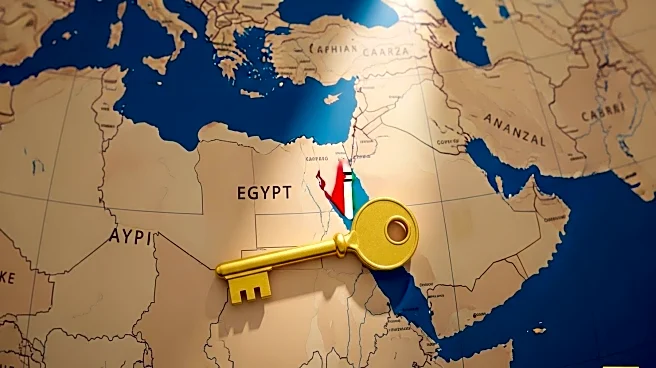What's Happening?
President Abdel Fattah el-Sisi of Egypt is being urged to open the country's borders to Gazan refugees seeking safe haven. This call comes amid ongoing humanitarian concerns in Gaza, where many are facing dire conditions. The suggestion is that allowing temporary refuge in Egypt could provide immediate relief to those affected by the crisis. The appeal to President Sisi is framed as a potential solution to alleviate suffering and promote peace in the region. The call for action is directed at President Sisi as a key figure who can make a significant impact by opening Egypt's gates to those in need.
Why It's Important?
The potential opening of Egypt's borders to Gazan refugees holds significant implications for regional stability and humanitarian relief. If President Sisi acts on this appeal, it could provide immediate shelter and safety for many individuals affected by the ongoing crisis in Gaza. This move could also shift the dynamics of international diplomacy, as Egypt's role becomes crucial in addressing the humanitarian needs of Gazans. The decision could influence Egypt's relations with neighboring countries and international bodies, potentially positioning Egypt as a leader in humanitarian efforts in the Middle East.
What's Next?
Should President Sisi decide to open Egypt's borders, it would likely prompt reactions from various stakeholders, including international humanitarian organizations, neighboring countries, and political leaders. The logistics of accommodating a large influx of refugees would need to be addressed, including housing, food, and medical care. Additionally, this decision could lead to diplomatic discussions on long-term solutions for the Gaza crisis, involving multiple countries and international organizations.
Beyond the Headlines
The call for Egypt to open its borders to Gazan refugees also touches on broader ethical and cultural dimensions. It raises questions about the responsibilities of neighboring countries in times of crisis and the role of international solidarity in addressing humanitarian issues. The decision could set a precedent for how countries respond to refugee crises, influencing global policies on migration and asylum.









